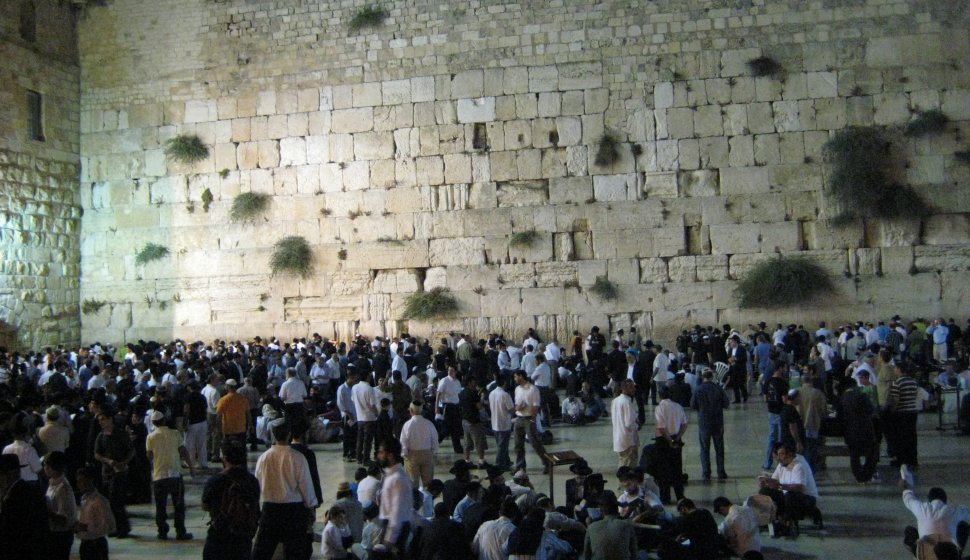- Home
- Religious Holidays
- Judaism
- Tisha B'av

Tisha B'av Dates in 2026, 2027 and 2028
Tisha B'av is celebrated at the following dates:
- Thursday, July 23, 2026
in New York State, starts Wednesday, 8:22 PM and ends Thursday, 9:06 PM - Thursday, August 12, 2027
in New York State, starts Wednesday, 8:01 PM and ends Thursday, 8:45 PM - Tuesday, August 1, 2028
in New York State, starts Monday, 8:13 PM and ends Tuesday, 8:57 PM
Tisha B'av is a day that commemorates a number of disasters in Jewish history, especially the destruction of the first and second temple of Jerusalem1. It occurs on the ninth day of the Hebrew month of Av1.
Origin
Destruction of the First Temple
The first temple, also known as Solomon's Temple was destroyed in 587 BCE by Nebuchadnezzar II, a Chaldean king in the neo-Babylonian empire after the Siege of Jerusalem12.
Destruction of the Second Temple
The Second Temple of Israel, built in 516 BCE, was destroyed in 70 CE by the Roman emperor Titus in response to the Jewish rebellion in 66 on the same date (9th of Av) as the destruction of the first temple3. According to Roman texts, the spoils from the destruction of the second temple were used to fund the construction of the Colosseum in Rome.
Murder of the ten Martyrs
During the ear of the Mishnah, 10 rabbis were martyred by the Romans after the destruction of the second Temple4. Although these Rabbis lived at different times, and therefore could not have been killed together, the Eleh Ezkera commemorates their deaths together in dramatic poetry4.
Massacres of Jews during the Crusades
During the Christian crusades between the 11th and 15th centuries, Jews were expelled from several European countries including France, the Rhineland (West Germany), England and Spain. Tens of thousands of Jews were killed during this time5.
The Holocaust
The most infamous Jewish disaster began in 1941 and ended in 1945 with the end of World War II. Over six million Jews were killed under the direction of Adolph Hitler in Germany and much of Europe. The number of Jews killed represented two-thirds of the global Jewish population6.
Celebration
Tisha B'av is recognized mainly by religious Jews by five prohibitions that include a 25-hour fast, no bathing or washing, no application of creams or oils, no leather shoes and no sexual relations7. These prohibitions can only be broken for medical reasons and must be approved by a Rabbi7. Work is to be avoided along with Torah studies except in the case of distressing stories. In Israel, restaurants and places of entertainment are closed under threat of heavy fines8. Combat soldiers are also exempt from fasting9.
